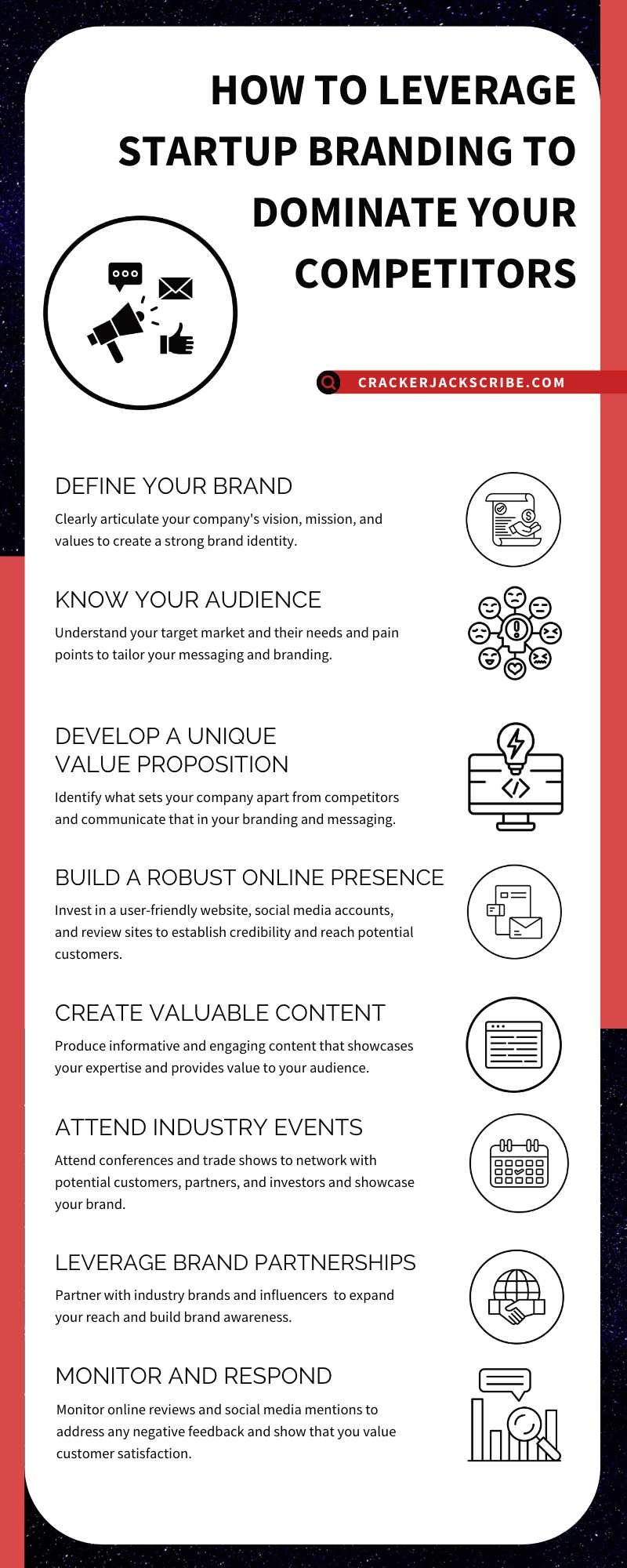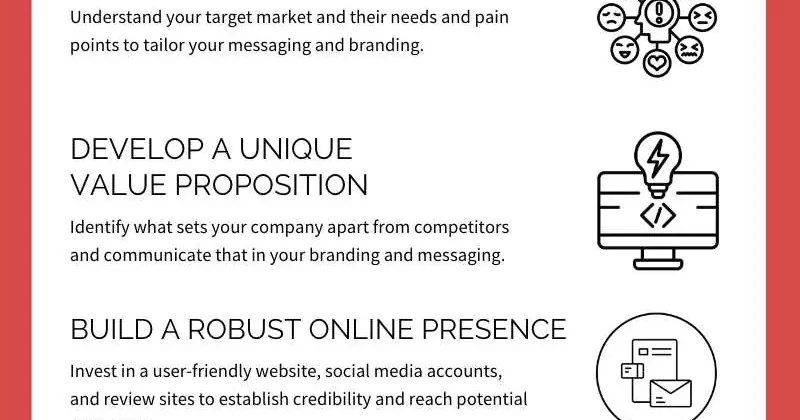For startups to succeed in a competitive landscape, having a solid brand identity is crucial. To achieve success, it is essential to understand the needs of your audience, create engaging and valuable content, and build an omnipresent identity online via social media and other channels. New businesses can establish a strong brand presence and differentiate themselves from competitors by following these startup branding guidelines.
To help, I’ve compiled the accompanying infographic outlining the basic steps to establish a robust online brand identity. Of course, it’s not as easy as 123. Each step requires effort and input to differentiate your brand from your competitors. It would be best to establish what makes your business unique and why your target audience should choose you over your competitor.
Below the infographic are links to other blog posts that go more in-depth on how to execute these startup branding strategies.

Steps to Startup Branding
- Define your brand: Clearly articulate your company’s vision, mission, and values to create a strong brand identity.
- Know your audience: Understand your target market and their needs and pain points to tailor your messaging and branding.
- Develop a unique value proposition: Identify what sets your company apart from competitors and communicate that in your branding and messaging.
- Build a robust online presence: Invest in a user-friendly website, social media accounts, and review sites to establish credibility and reach potential customers.
- Create valuable content: Produce informative and engaging content that showcases your expertise and provides value to your audience.
- Leverage influencer marketing: Partner with industry influencers to expand your reach and build brand awareness.
- Attend industry events: Attend conferences and trade shows to network with potential customers, partners, and investors and showcase your brand.
- Offer exceptional customer service: Provide top-notch customer service to build a loyal customer base and positive word-of-mouth marketing.
- Monitor and respond to feedback: Monitor online reviews and social media mentions to address negative feedback and show that you value customer satisfaction.
In Conclusion
In conclusion, establishing a strong brand identity is crucial for startups to succeed in a competitive business landscape. By following the above startup branding guidelines, new businesses can differentiate themselves from competitors and establish a robust online presence.
Remember, it takes effort and input to build a strong brand identity, but the payoff is worth it. By defining your brand, knowing your audience, developing a unique value proposition, building a robust online presence, creating valuable content, leveraging influencer marketing, attending industry events, offering exceptional customer service, and monitoring and responding to feedback, startups can establish a strong brand presence and achieve long-term success.




Leave a Reply